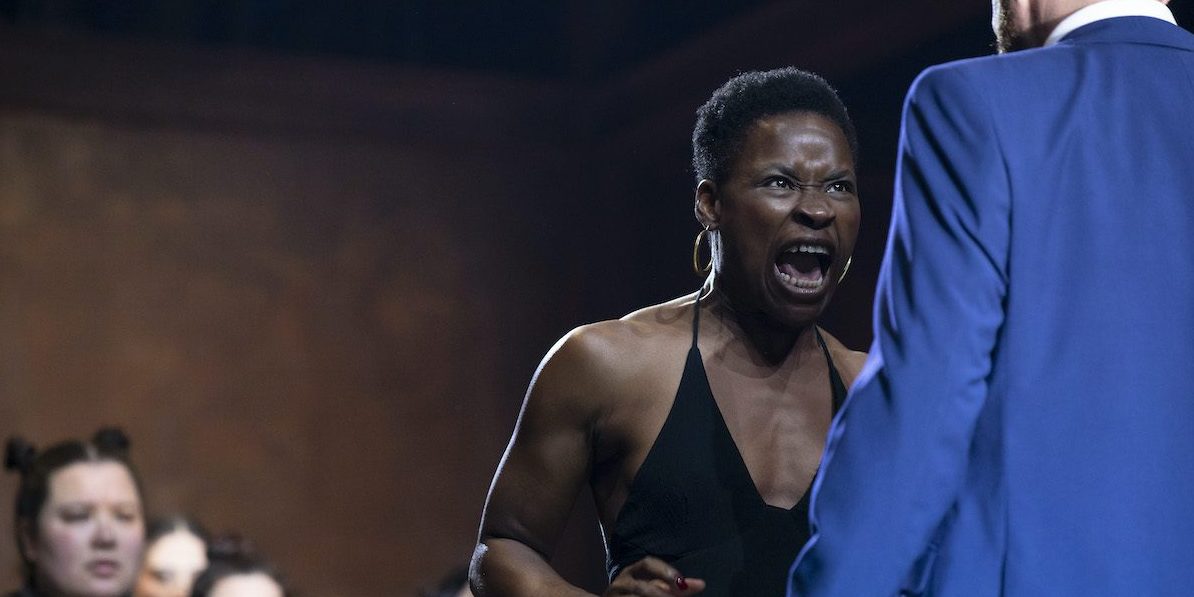There is a moment in the National Theatre of Scotland’s production of Medea when Adura Onashile – playing the titular character – stands stock still, every muscle in her back and every tendon in her arms standing out tense and taut. And then they relax, her shoulders slump slightly, and she heads into the darkness to carry out her dreadful revenge.
It is a riveting snapshot of awful power and poise in a play that is stuffed full of them. These moments ensure Liz Lochhead’s unabashedly modern, Scottish version of Euripides’ play loses nothing of the weight and power of the classical drama on which it is based.
The story of Medea, wronged wife of Jason (of Golden Fleece fame) who enacts the most terrible vengeance on her treacherous husband is over 2700 years old. However, Lochhead infuses it with an urgency and a rage that is undeniably up-to-date.
Lochhead’s script is coarse and funny, but the moments of horror and anguish are never allowed to feel jarring, instead rising utterly naturally from the actions and emotions of the characters on stage. In this, they are aided by a set of performances that are superb across the board.
Robert Jack’s Jason has exactly the right amount of smarmy arrogance, suffused with enough humanity that pity comes easy when the final blow falls. Both Anne Lacey and Adam Robertson’s servants deliver monologues that are impossible to look away from.
However, it is Onashile’s powerhouse performance that is the true star turn. Her Medea is a strong, proud, deeply flawed woman and a breathtaking presence. She embodies Medea’s spirit not through dramatic acting but through stillness and subtlety. With just a lift of her chin, a tightening of her jaw, a smirk, a tear, a roll of the eyes, she has the audience in the palm of her hand. Her backless, sleeveless dress lets us see every physical twitch and tension, lets us live her every emotion.
This feeling of exposure, of a woman whose every raw nerve ending is on show, is heightened by the play’s processional staging. With the audience wrapped around the stage and the actors, we become absorbed in the drama. It is a sign of how gripping the production and acting are that we laugh, gasp and cover our faces in sympathy throughout, physically connected to the happenings on stage.
The play’s chorus of nine women weaves among us, sometimes standing on steps in the auditorium, at other times crowding the stage or cowering against the back wall in the face of Medea’s ‘unnatural’ actions. They provide the conscience of the play, bringing us on the journey with them. We feel their fury at the despicable behaviour of Jason, share their thirst for revenge, and shrink back as they do when Medea goes too far. Underpinning all of this and absorbing us further into the production is the subtle percussion, heightening emotions without ever intruding.
Medea is a perfectly balanced play, one in which there are no heroes or villains. We despise Jason for his demeaning of Medea and feel pity for what she does to him. We sympathise with Medea’s rage and are horrified by her actions. Liz Lochhead and the National Theatre of Scotland, along with a stunning performance from Adura Onashile, have brought this balancing act to vivid, riveting life

